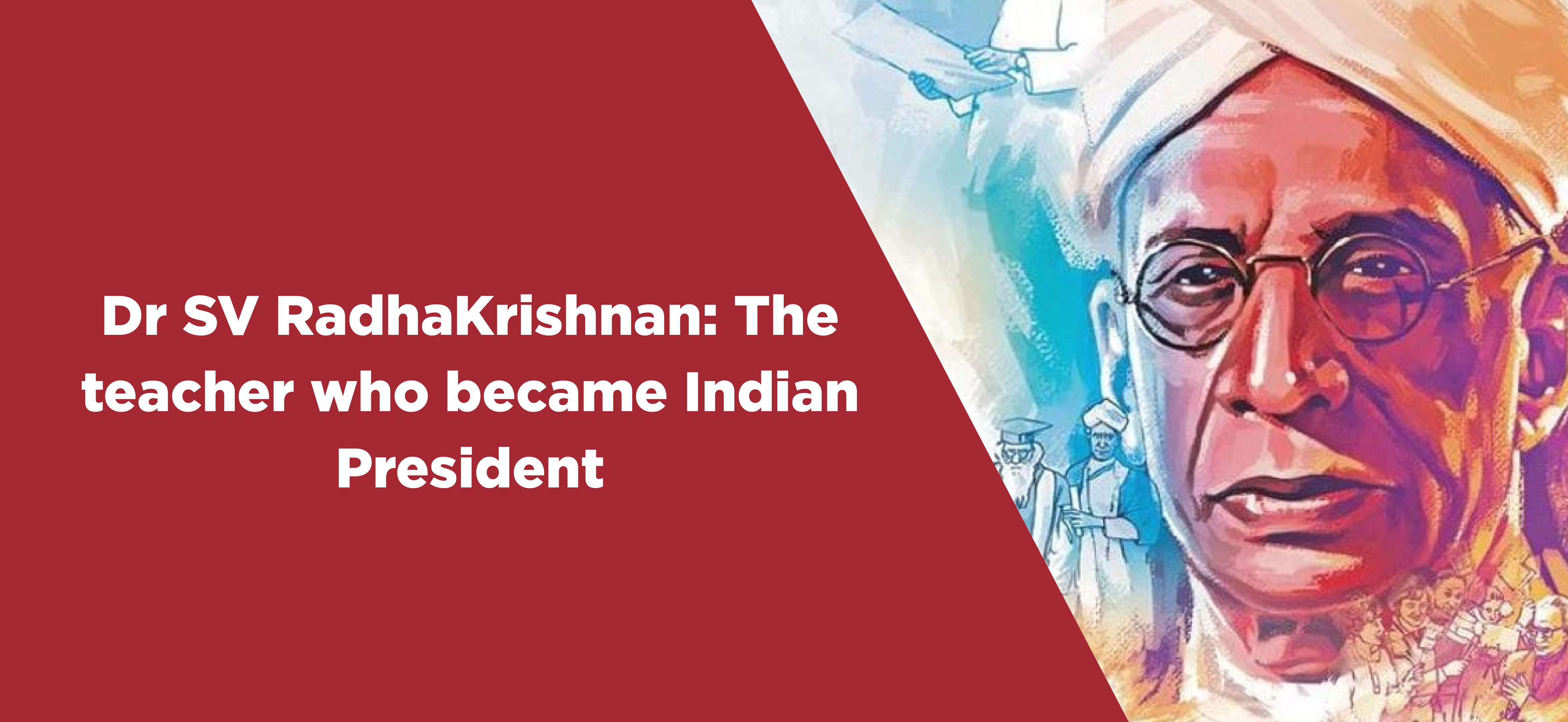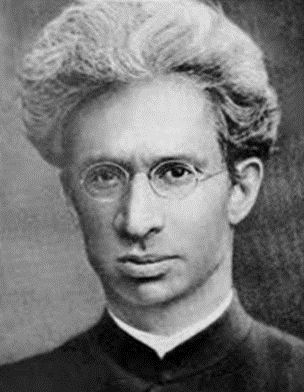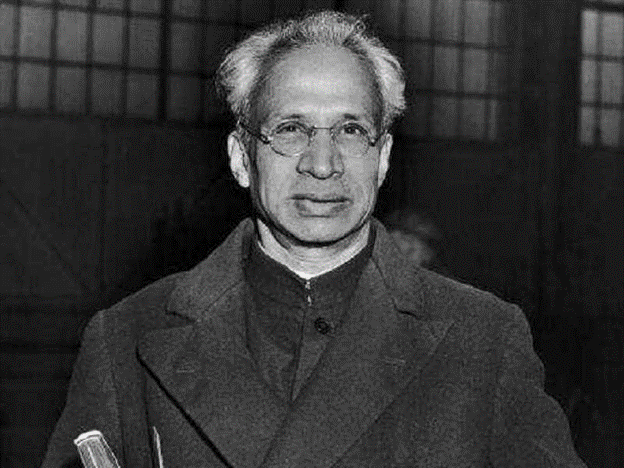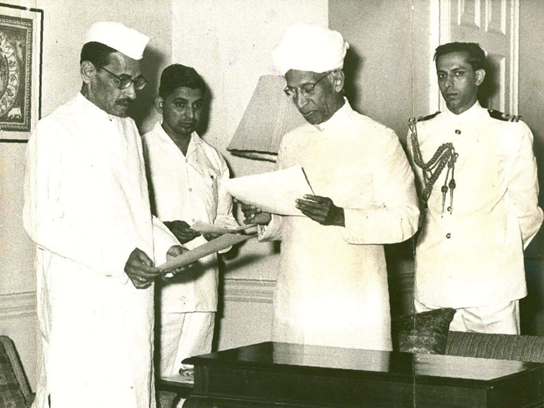Dr SV RadhaKrishnan: The teacher who became Indian President
Blogs Home
- 06 Sep 2022

Dr Sarvepalli Radhakrishnan was an Indian philosopher, well-known teacher, writer and politician who served as the second President of India from 1962 to 1967. He was born in Andhra Pradesh on the 5th of September, 1888. He was also a professor at Oxford University. As a writer, he wrote mainly to spread Indian culture. He defended Hinduism and it is reflected in his well-known works– “The philosophy of Upanishad”; “East and West: Some Reflections”. Dr Sarvapalli Radhakrishnan was known as the bridge builder between India and the West. He led the Indian delegation to the United Nations Educational, Scientific and Cultural Organisation(UNESCO). He spent his life as a writer attempting to describe, defend, and propagate his faith.
Let us look into the life of Dr Sarvapalli Radhakrishnan, his family, his education, his career as a teacher and how teachers’ day came into being and finally his political career
Early life
Dr. Sarvepalli Radhakrishnan was born to a Telugu-speaking Niyogi Brahmin family in Tiruttani, Madras Presidency, British India (now Tamil Nadu) on 5th September 1888.
His father Sarvepalli Veeraswami was a subordinate revenue official and his mother, Sarvepalli Sita looked after his family. He was married to Sivakamu and became a father to five daughters and one son.
At the age, of 17, he attended Madras Christian College and in the year 1906, he completed his master's degree in Philosophy and became a professor.
In 1931, he was knighted and came to be known as Sire Sarvepalli Radhakrishnan until 1947. Post-independence his title was renamed, Dr Sarvepalli Radhakrishnan.
He was appointed Spalding Professor of Eastern religions and Ethics at Oxford University in the year 1936.
Political Life
In 1946, he was elected to the constituent Assembly. He had also served as an ambassador to UNESCO and then later to Moscow.
In 1952, he became the First Vice President of India and the second President of independent India in 1962.
He was awarded Bharat Ratna, the peace prize of the German Book Trade and received the Order of the Merit and Templeton Prize.
When Dr Radhakrishnan presided over the office as the second president of India, his students approached him to seek permission to celebrate his birthdate as a special day. To which he requested to observe 5th September as teachers’ day to recognise the contribution of teachers to the society.
He said, “ instead of celebrating my birthday, it would be my proud privilege if 5th September is observed as Teachers’ day”
In his career, he was the Vice-Chancellor of Andhra University and Banaras Hindu University and Chancellor of Delhi University from 1953-1962
Oxford University started Radhakrishnan Chevening scholarships and Radhakrishnan Memorial Award in his memory.
Major works and contributions
He propagated Hinduism against “uninformed Western criticism and made Hinduism more approachable to the western society
| 1923-1927 | INDIAN PHILOSOPHY |
| 1924 | THE PHILOSOPHY OF THE UPANISHADS |
| 1932 | AN IDEALIST VIEW OF LIFE |
| 1939 | EASTERN AND WESTERN THOUGHT EASTERN AND WEST: SOME REFLECTIONS |
Dr. Radhakrishnan’s awards and achievements
In the year, 1954 he was awarded the Bharat Ratna(India’s highest civilian honour).
He was the first individual to be awarded the Sahitya Akademi fellowship, the highest distinction.
He was also awarded the Templeton prize for supporting non-violence and presenting the reality of God that embraced love and wisdom for all people. He has brought recognition to Indian philosophy.
Contribution towards Indian Education and Teacher’s Day
Dr Radhakrishnan was a believer in idealistic values. He recommended yoga, morality, geography, general science, agriculture, political science, ethics, literature and philosophy, poetry, painting and mathematics. The most significant contribution to educational thinking and practice is the report of the University Education Commission 1940-49.
According to him, the objective of education should be:
1. To believe that life has a purpose
2. To nurture the wisdom to awaken the innate ability
3. To prepare for democratic processes
4. Learning the skill of Self-improvement
5. To be aware of one’s cultural heritage
Lesser known facts about Dr. S.V. Radhakrishnan
Very few people of today’s time know that former Indian cricketer VVS Laxman (born : 1974) is the great-grand-nephew of the former Indian President, Dr Sarvepalli Radhakrishnan.
At the time of his becoming the president of India, Dr Radhakrishnan accepted just Rs 2500 out of a monthly salary of Rs 10,000, with the remainder going to the Prime Minister’s National Relief Fund.
Oxford University started two scholarship programmes– Radhakrishnan Chevening Scholarships and the Radhakrishnan Memorial Award.
Conclusion
Dr Radhakrishnan's path ranged from a small village in Tamil Nadu and Andhra Pradesh, to becoming the second President of India. His contribution as a teacher and as the second President will live on forever. His philosophy and thoughts on education and teachers are reflected through his quotes:
| "When we think we know we cease to learn.” |
| anubhavavasanameva vidya phalam: "The fruit of knowledge, the fruit of vidya is anubhava.” |
| "Books are the means by which we build bridges between cultures." |
Akai Negi
Akai Negi has done her Masters in Pol Science after completing her graduation from DU. She has a keen interest in writing, blogging and journaling. When it comes to writing, she likes to do research and investigate topics of interest.







